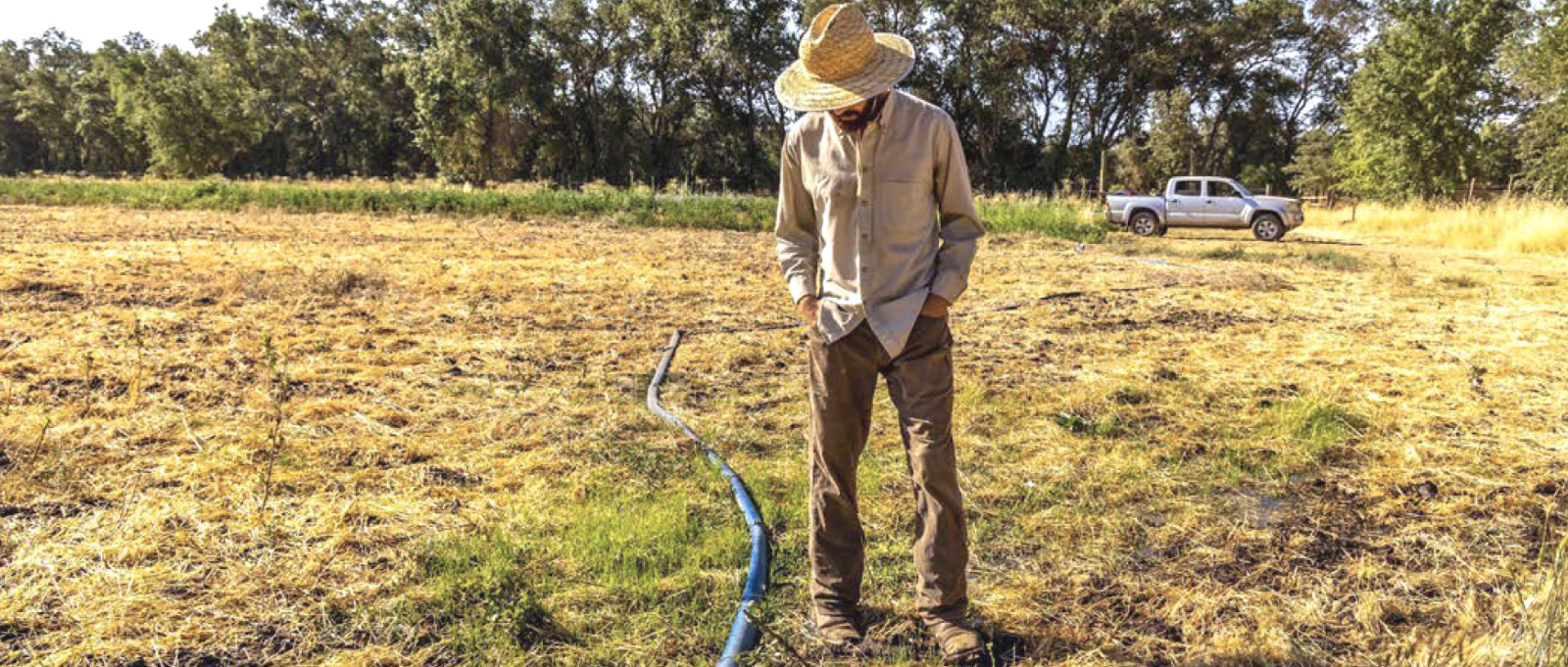June 1, 2022
Topic
SACRAMENTO, CA — A new report concludes that the most consequential groundwater policy in California history has, so far, failed to adequately include small and underrepresented farmers.
Passed in 2014, the Sustainable Groundwater Management Act (SGMA) was designed to protect California’s groundwater, setting up local agencies to develop regional plans to prevent over-pumping as demand grows, droughts persist, and climate change points to a drier future.
But despite the law’s mandate to consider the interests of all beneficial uses and users of groundwater, the new report titled SGMA and Underrepresented Farmers, released this week by CivicWell, Clean Water Action, Community Alliance with Family Farmers (CAFF), University of California Agriculture & Natural Resources, and the Leadership Counsel for Justice & Accountability, reveals that among 14 local Groundwater Sustainability Agencies (GSAs) studied, few considered the impacts of their plans on farmers growing on smaller acreages, those with shallow wells, tenant farmers, and farmers from underserved communities. None of the plans reviewed included efforts to provide language- and culturally-appropriate outreach to engage these farmers when drafting their plans.
“Small farmers like me are busy adapting to drought and less available groundwater, while working day-to-day to grow food for our communities. Unfortunately, we fall through the cracks of well-intentioned policies,” says Chris Fields, who grows vegetables for his community near Fresno as part of the African American Farmers of California.
While water scarcity threatens agriculture more generally, the impact is far greater for underrepresented farmers. When the water table drops–as occurs more frequently as larger farms dig deeper wells in times of drought–it’s the shallow wells, those typically belonging to small farms, that come up dry first.
With limited means, many of these smaller and especially historically underserved farms are unable to invest in new water infrastructure. Not only do these farms have fewer resources to fall back on during tough times, but the report points to statistics showing that farmers of color receive only two thirds the amount of government funding as do their white counterparts.
“Our analysis found that the concerns of small farmers as a whole have been largely ignored by local Groundwater Sustainability Agencies,” says Clean Water Action’s Water Policy Analyst Ngodoo Atume, who authored the the report along with CivicWell’s Diana Voss-Gonzalez. “How can local basins achieve sustainability when plans fail to consider and address everyone who relies on groundwater?” Ngodoo also pointed out that these findings run counter to the Farmer Equity Act, passed by the legislature in 2017.

As the state explores plans to incentivize fallowing farmland through water markets–systems that allow property owners to sell their water allocations during dry times–tenant farmers who lease that land could face eviction, a casualty so far overlooked by regulatory agencies. Of the 14 plans studied in the report, none took into account the impact of water markets on underrepresented or tenant farmers.
To rectify the deficiencies outlined in the report, the authors offer a number of recommendations to ensure that small and underrepresented farmers can be full partners in achieving groundwater sustainability. They include better interagency coordination at the state level, tailored and culturally-appropriate outreach and engagement materials in multiple languages provided by trusted partners on the ground, and guidance to ensure that implementation of local groundwater plans does not disproportionately burden underrepresented farmers.
Earlier this Spring, a group of 12 state assembly members led by Robert Rivas (D-Salinas) signed a letter including a $10 million request for SGMA outreach and engagement with small scale and historically underserved farmers in the CA state budget. As the legislature now deliberates on how exactly to the use California’s nearly $100 billion surplus, Dave Runsten, CAFF’s Senior Policy Analyst, is urging lawmakers to recognize that, “This relatively modest investment will help ensure a more fair and comprehensive approach to California’s groundwater policy, one that doesn’t let small farms dry up.”
Header photo from the Community Alliance with Family Farmers. Photo by Joan Cusick.





